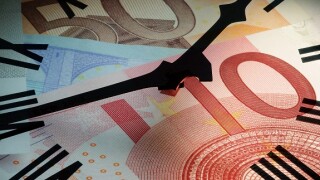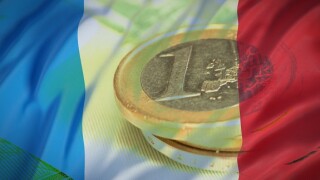French Sovereign
-
The SSA sterling market has enjoyed its busiest week for two months, with three borrowers coming to market. More could be set to follow if conditions remain tranquil.
-
CDP Financial, one of Canada's largest public pension asset managers, joined three other public sector borrowers in the dollar market on Tuesday to sell its debut green bond.
-
A slew of SSA issuers hit screens on Monday to announce dollar benchmarks. Despite the crowded market, dollar deals — particularly at the short end of the curve — are expected to be well received.
-
Île-de-France Mobilités, the state-owned authority for public transport in the Île-de-France region, is set to make its first trip to the green bond market. The borrower intends to use green bonds for around 60% of its financing needs until the end of 2025.
-
Two SSA borrowers landed in the euro bond market on Wednesday while a third lined up business for next week. Issuers may still be achieving good results but bankers believe conditions are turning bad.
-
-
Bpifrance is looking to become a regular issuer of green bonds, following its debut deal in the format this week.
-
Bpifrance achieved a solid result as it sold its first green bond on Thursday, which came alongside another green bond from a compatriot issuer.
-
Bpifrance will be holding calls with investors next week to introduce its new green bond framework ahead of a debut deal in the format with the proceeds to be focused on renewable energy projects.
-
This week's funding scorecard looks at the progress French agencies have made in their funding programmes at the beginning of April.
-
French president Emmanuel Macron announced on Wednesday that stringent lockdown measures imposed in some areas will be extended nationally for a month. Though the measures will cost France €11bn, it is unlikely to provoke a serious response in France’s bond market.
-
France's Agence Française de Développement is looking to hire a director of its treasury and capital markets department.








